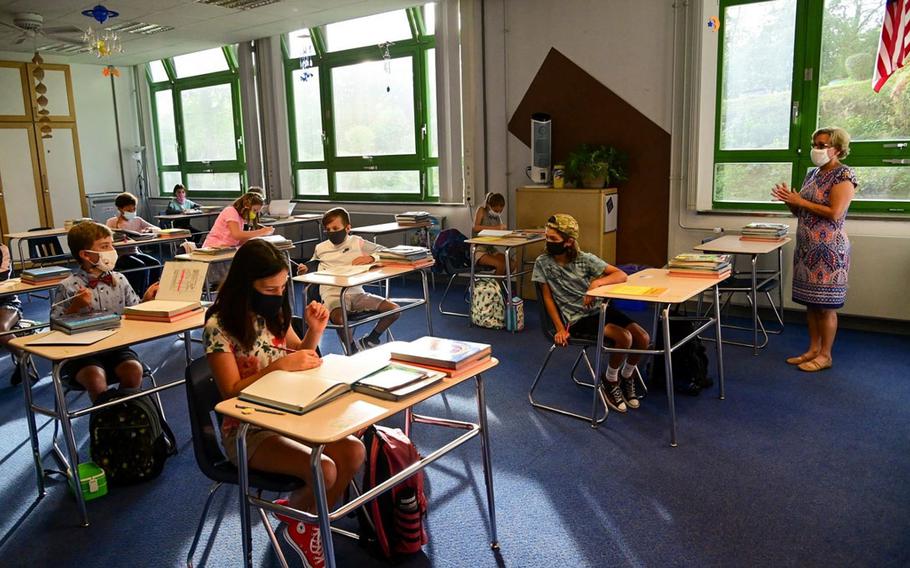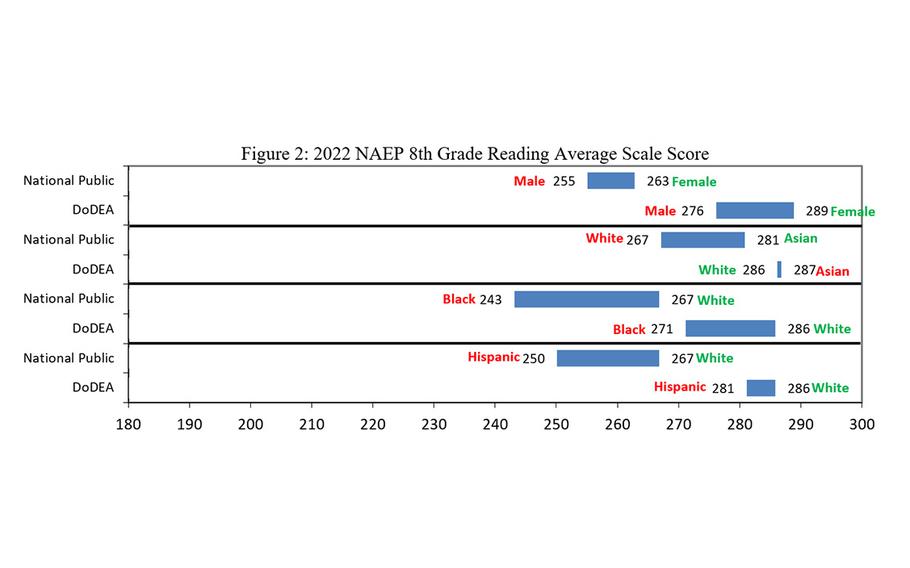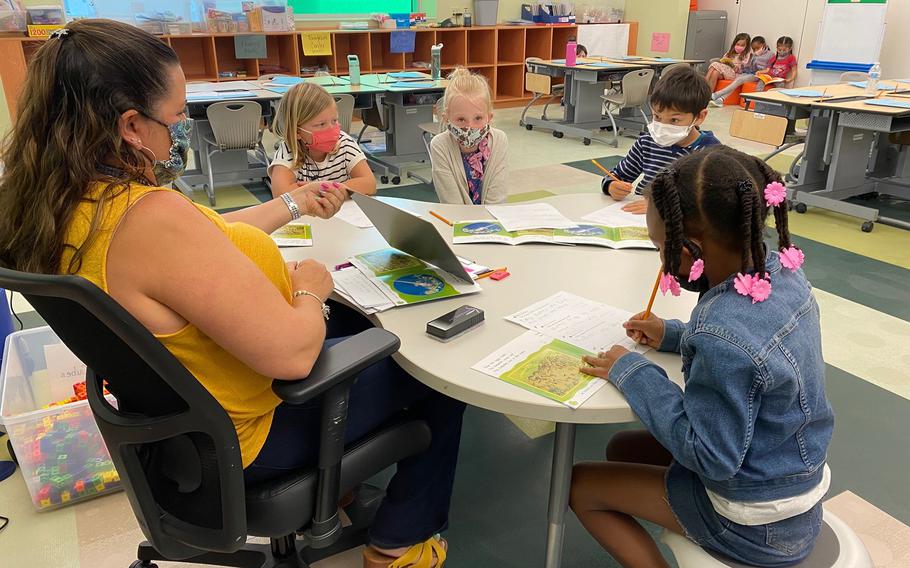
Fourth graders and eighth graders at Department of Defense Education Activity schools scored the best in both reading and math on the 2022 National Assessment of Educational Progress. (Department of Defense Education Activity)
Stars and Stripes is making stories on the coronavirus pandemic available free of charge. See more stories here. Sign up for our daily coronavirus newsletter here. Please support our journalism with a subscription.
Students in the fourth and eighth grades at the U.S. military’s schools ranked best in the nation in the first standardized testing of its kind since COVID-19 shuttered schools and disrupted classroom learning for millions of American schoolchildren.
Perhaps most significantly, the Department of Defense Education Activity held steady in math, while stateside scores in that category of the National Assessment of Educational Progress saw their steepest declines ever since the first assessments in 1990.
In addition, DODEA was the only jurisdiction in the assessment to record a score increase for any grade or subject, officials said. The District of Columbia and all 50 states saw their metrics either plummet or stay the same.
Keeping classrooms open for much of the pandemic paid off for DODEA, which averaged 15 to 23 points higher than all national average scores on the assessments.
DODEA leaders strove for “equity of access and continuity of instruction” early in the pandemic through a rapid switch to remote learning, then created conditions that made it safe for students to return to classrooms for the full 2020-21 school year, senior Defense Department official Gilbert Cisneros said Monday in a statement announcing the results.
Female DoDEA students achieved a higher average scale score in reading than their male counterparts during the National Assessment of Educational Progress 2022. (Department of Defense Education )
Known as the Nation’s Report Card, the NAEP is the only nationally representative and continuing assessment of what American students know and can do in various subject areas.
The NAEP scale ranges from 0 to 500. Researchers think a 10-point gain or drop is equivalent to about a year of learning, according to The Associated Press.
This year, the average math score for DODEA fourth graders was 250, the same as in 2019, when the last pre-pandemic testing occurred. Nationwide, fourth graders’ math score dropped five points, from 241 to 236.
In eighth-grade math, DODEA again held steady at 292, while the national average went from 282 to 274.
In reading, DODEA fourth graders had the same average score as they did in 2019, but eighth graders saw a boost from 280 to 282.

The difference between eighth-grade reading performance at or above proficient level between male and female students is significant; 46% and 63% respectively, according to scoring on the 2022 National Assessment of Educational Progress Assessment. Both Black and Hispanic students showed significant increases between 2022 (41 and 52, respectively) and 2019 (32 and 41, respectively). (Department of Defense Education )
And 55% of DODEA eighth graders scored proficient in reading, compared with a stark 29% in domestic public schools.
The only area in which DODEA students’ proficiency dipped below 50% proficient was eighth-grade math. Even so, the 41% tally was 15 percentage points better than the nationwide average of 26%.
As defined by the assessment, proficiency means knowledge of challenging subject matter, the ability to apply that knowledge to real-world situations and demonstration of analytical skills appropriate to the subject matter.
DODEA director Thomas Brady said he was thrilled with the results, and he credited the strong performance to the dedication of teachers and administrators along with rigorous academic standards.
Those thoughts were seconded by Brian Chance, the president of the Federal Education Association, the largest union representing DODEA teachers.
Chance said they “are uniquely aware of the challenges faced by military dependents and their families.”

DODEA-Pacific students participate in a back-to-school program in 2021. (Department of Defense Education Activity)